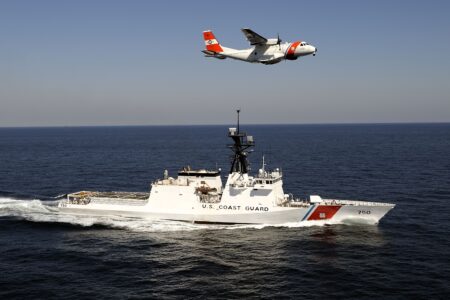The MTA and Transit Innovation Partnership hosted the Signaling Challenge Virtual Demo Day on April 02, 2020, a digital event in which 17 leading technology companies presented proposals to MTA officials for modernizing New York City’s century-old subway signaling system, via more than 150 video conference presentations and Q&A sessions.
The Virtual Demo Day was part of the MTA and Transit Innovation Partnership’s Signaling Challenge, which is enlisting the world’s top transportation technology innovators to identify ways to make existing subway cars compatible with new signaling technology as quickly and cost-effectively as possible. The progress of this initiative reflects the MTA’s commitment to execute on long-term modernization plans while simultaneously addressing a major public health and service delivery emergency.
“The MTA is focused on the long-term needs of the region’s transportation system while we handle the unprecedented day-to-day challenges posed by the CoViD-19 pandemic,” said Mark Dowd, MTA Chief Innovation Officer. “This public health crisis is a formidable challenge and we sincerely appreciate the hard work of Transit Innovation Partnership in helping MTA build the most innovative solutions on the market.”
“We are grateful to the transit workers keeping our city running and honored to continue our partnership to identify and implement the most advanced technologies in the world to achieve the safety, efficiency and service goals of the signaling modernization program,” said Rachel Haot, Executive Director of the Transit Innovation Partnership.
At the Virtual Demo Day, invited companies presented a wide variety of innovative technologies that could help modernize the subway’s signaling system, including ultra-wideband and other wireless communications and radio technologies, LiDAR mapping systems, collision avoidance systems, artificial intelligence, machine learning and robotics. Companies were evaluated by MTA subject matter and academic experts following the introduction of the challenge at the December 2019 Signaling Innovation Summit hosted by the MTA, Transit Innovation Partnership and Empire State Development. The Summit gathered more than 100 leading transit technology companies from four continents to explore the best ways to reimagine signaling infrastructure and transition to 21st century signaling technologies.
Subject matter experts are evaluating the Signaling Challenge proposals on a set of criteria that include how much they would improve the subway system’s safety, on-time performance and operational flexibility. Challenge winners could proceed to work collaboratively with the MTA to further test, develop or explore implementing their solutions.
A critical part of modernizing subway signaling in a cost-efficient manner is upgrading legacy train cars with new technology. The Signaling Challenge calls for reliable, cost-effective strategies that can support and accelerate the MTA’s aggressive goals to modernize the subway.
Yesterday’s Virtual Demo Day furthers the MTA’s ongoing work with the Transit Innovation Partnership — a public-private initiative between the MTA and the Partnership for New York City with the mission to make New York the global leader in public transit technologies.
The companies that participated in the Virtual Demo Day were:
- 4TEL
- Acorn Systems
- Alstom
- Clear-Vu Lighting
- Fluidmesh Networks, LLC
- Foamspace
- Humatics
- Initech Industrial, LLC
- Invision AI, Inc.
- Luminar Technologies, Inc.
- Metrom Rail-Astronics
- Ouster LiDAR
- Piper Networks
- Railvision & KBC
- Reliabotics
- Siemens Mobility
- Thales Transport & Security, Inc.
About the Transit Innovation Partnership
The Transit Innovation Partnership is a public-private initiative formed by the Metropolitan Transportation Authority and the Partnership for New York City with the mission to make New York the global leader in public transit. A board of leaders from academia, business, civic organizations and government guides the Transit Innovation Partnership, which brings together diverse stakeholders to realize public-private projects that improve transit performance and customer service. Focus areas include technology and process innovation in infrastructure, data, operations, customer service and revenue generation. To learn more, please visit here.








